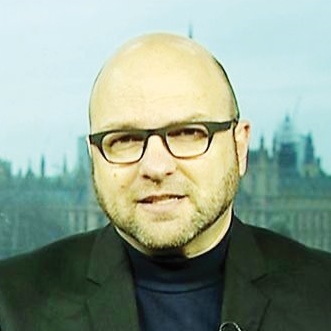click to dowload our latest edition
CLICK HERE TO SUBSCRIBE TO OUR NEWSLETTER


Published
5 years agoon
By
adminANDREW FEINSTEIN
In late 2011, then President Jacob Zuma – facing 16 charges and 783 counts of fraud, corruption, and racketeering in relation to the arms deal – avoided a Constitutional Court-appointed judicial commission of inquiry into corruption in the transaction by appointing his own commission with Judge Willie Seriti at its helm.
Seriti, a high court judge, had been responsible for authorising the wire-taps which led to the highly controversial dropping of the charges against Zuma and was therefore seen as “a safe pair of hands” by Zuma and his associates.
From the outset of the inquiry into the alleged $350 million (R5.3 billion) of corruption in the $6 billion (R91 billion) arms deal, it was clear that the judge and a number of his key appointees had an agenda that was more about concealing than confirming the blatant corruption.
My book, After the Party, had documented the lengths to which the African National Congress (ANC) had gone to stop me and the public accounts committee, on which I was the senior ANC member, from investigating corruption in the deal.
After rebuffing a variety of forms of persuasion, intimidation, and finally threats from senior members of the ANC to stop the investigation I had initiated, I was removed from the committee by Tony Yengeni, my chief whip. He was later found to have lied to parliament about his receipt of a massive discount on a luxury SUV from one of the companies bidding for a contract on the arms deal. I was then informed by the party that I was to be removed from parliament. I resigned the night before this was due to happen.
Three senior members of the commission – one of the three judges, a key evidence leader, and a senior researcher – all resigned from the commission. The latter two claimed publicly that the commission had a double agenda: to deny the existence of any corruption in the fraught arms deal, and to discredit the critics of the deal, including me.
My colleague, Paul Holden, and I had initially assisted the commission to contact prosecutors around the world who had compiled evidence of corruption in the deal. We also made a 200 000 word submission to the commission, supplemented by numerous evidentiary documents that laid bare this corruption. (You can see a number of these documents here: http://armsdealfacts.com)
As we were preparing to give verbal evidence to the commission with our South African-based colleague Hennie van Vuuren, our legal representatives were informed by the commission that we wouldn’t be allowed to utilise the evidentiary documents as we hadn’t authored them. We therefore declined to give evidence.
The effect of Judge Seriti’s decision is reflected in his attitude to one of the documents. In a company minute, German defence company ThyssenKrupp acknowledged that “Chippy” Shaik, the head of procurement in the South African National Defence Force at the time of the deal, requested a bribe of $3 million (R46 million), and that it had agreed to pay it. The commission suggested that only the ThyssenKrupp company secretary who wrote the minute, or Shaik, could submit it, in spite of the fact that it had been reproduced in the German media over many years.
Judge Seriti also decided that the commission would not consider the evidence presented in the trial in which Schabir Shaik, financial adviser to Jacob Zuma and brother of “Chippy”, was found guilty of corrupting Zuma on behalf of a French defence company. The Shaik verdict, confirmed by both the appeal court and the Constitutional Court, was, in Seriti’s view, not relevant to the deliberations of a commission inquiring into corruption in that very transaction.
And, when it came to hearing evidence from the main protagonists in the deal, including former President Thabo Mbeki, who directed the deal, and Fana Hlongwane, former Defence Minister Joe Modise’s political adviser, who received tens of millions of dollars from companies who won contracts on the deal, the commission allowed them to make outrageous statements that were contradicted by voluminous evidence without meaningfully questioning them.
The withering judgement of the North Gauteng High Court concluded that the Seriti Commission, in spite of spending R140 million of taxpayers’ money, with the judge earning R7 million a year for his efforts, had failed in its duty to meaningfully determine whether there was corruption in the biggest procurement yet concluded in our democratic era.
This damning indictment of the judgement is a highly significant victory for the people of South Africa. It sends a loud and clear message that a politician, even the president of the republic, cannot avoid meaningful scrutiny by the courts after being exonerated by executive-minded commissions of inquiry.
Crucially it means that Zuma will be unable to use the Seriti Commission’s “see no corruption, hear no corruption” report in his defence when he goes on trial later this year for corruption in the arms deal.
I hope that the National Prosecuting Authority will now bring charges against all those implicated in gargantuan corruption in the arms deal, both prominent South Africans from the Mbeki era, and the global defence companies and their intermediaries who paid the bribes.
